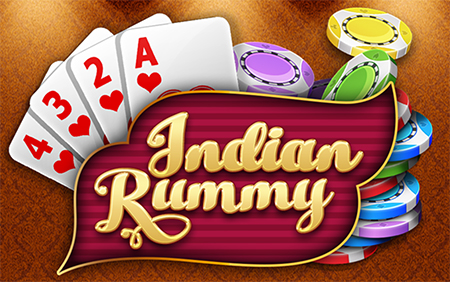How many people can play Indian rummy?
Views: 124 Update date: Dec 15,2023
In the realm of classic card games, Indian Rummy stands out as a timeless favorite, blending skill, strategy, and a touch of chance. As enthusiasts seek to organize game nights or tournaments, a common query arises: How many people can truly partake in a game of Indian Rummy?
1. The Standard Player Count
Indian Rummy is traditionally designed for 2 to 6 players. This range strikes a balance between individual skill expression and group dynamics. The game's fundamental objective, forming valid sets and runs, remains consistent across player counts, ensuring a seamless transition for varying group sizes.
2. Intimate Gatherings (2-4 Players)
For more intimate settings with close friends or family, a smaller group of 2 to 4 players is ideal. This configuration allows for a more concentrated experience, with deeper strategic interactions and a heightened focus on each player's moves.
3. Lively Game Nights (5-6 Players)
In a more intimate setting, such as a tête-à-tête or a triad, the game transforms into a nuanced duel of minds. Each move takes on heightened significance, emphasizing psychological elements and strategic finesse.
2. 4-6 Players: The Ensemble Strategy
With a larger group, Indian Rummy becomes a strategic ensemble. Collaborative strategies, nuanced observations, and adaptability to diverse playing styles become essential. This format fosters an atmosphere of healthy competition and camaraderie.
Determining the Optimal Player Count
While Indian Rummy rules accommodate up to 6 players, the optimal number for an ideal gaming experience hovers around 4 to 5 players. This range strikes a delicate balance, ensuring an engaging game without sacrificing strategic depth or succumbing to potential chaos associated with larger groups.
In the intricate tapestry of Indian Rummy, the number of players is a crucial thread that influences the overall gaming experience. Whether orchestrating an intimate gathering or hosting a lively game night, understanding the dynamics of player counts enhances one's ability to curate a memorable and enjoyable gaming session.
1. The Standard Player Count
Indian Rummy is traditionally designed for 2 to 6 players. This range strikes a balance between individual skill expression and group dynamics. The game's fundamental objective, forming valid sets and runs, remains consistent across player counts, ensuring a seamless transition for varying group sizes.
2. Intimate Gatherings (2-4 Players)
For more intimate settings with close friends or family, a smaller group of 2 to 4 players is ideal. This configuration allows for a more concentrated experience, with deeper strategic interactions and a heightened focus on each player's moves.
3. Lively Game Nights (5-6 Players)
As the player count increases to 5 or 6, Indian Rummy evolves into a vibrant social activity. The game's pace quickens, strategic depth expands, and the social aspect becomes more pronounced. This larger format is well-suited for occasions where entertainment and interaction are paramount.

Strategic Considerations for Different Player Counts
In a more intimate setting, such as a tête-à-tête or a triad, the game transforms into a nuanced duel of minds. Each move takes on heightened significance, emphasizing psychological elements and strategic finesse.
2. 4-6 Players: The Ensemble Strategy
With a larger group, Indian Rummy becomes a strategic ensemble. Collaborative strategies, nuanced observations, and adaptability to diverse playing styles become essential. This format fosters an atmosphere of healthy competition and camaraderie.
Determining the Optimal Player Count
While Indian Rummy rules accommodate up to 6 players, the optimal number for an ideal gaming experience hovers around 4 to 5 players. This range strikes a delicate balance, ensuring an engaging game without sacrificing strategic depth or succumbing to potential chaos associated with larger groups.
In the intricate tapestry of Indian Rummy, the number of players is a crucial thread that influences the overall gaming experience. Whether orchestrating an intimate gathering or hosting a lively game night, understanding the dynamics of player counts enhances one's ability to curate a memorable and enjoyable gaming session.



